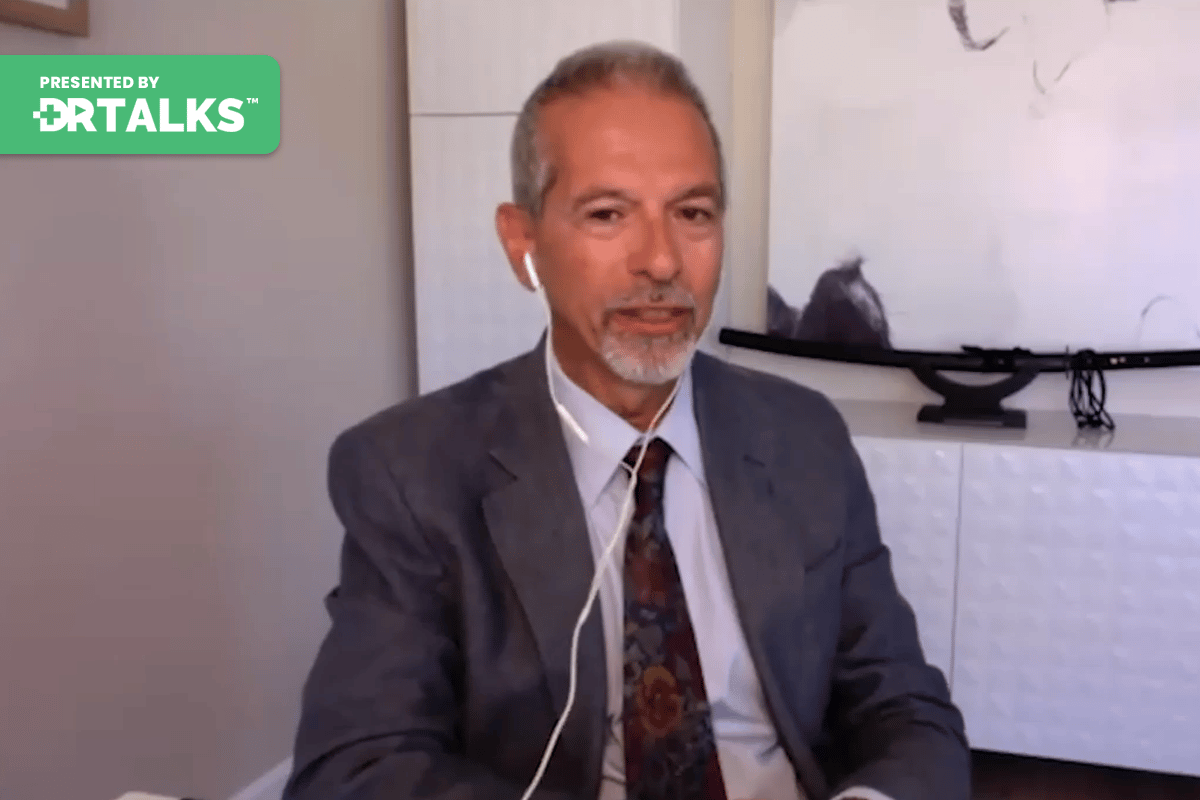But before I go into the links in research we need to go over the general stats on anxiety and depression because you’re gonna be surprised to find out I was at least surprised at how much more significant anxiety and depression is an individual struggling with gut dysfunction than it is in the general population because in the general population the stats on anxiety in 12 month prevalence it’s 19.1%. It’s a little under 1 in 5 And for depression it’s only 8.4%. Well I shouldn’t say only 8.4% that’s a 12-month prevalence. A major depressive episode that’s significant and needs to change. We’re gonna see it’s much greater for those with gut dysfunction. So irritable bowel syndrome is a diagnosis that looks at a collection of symptoms. So it looks at things like abdominal pain and distention and bloating diarrhea and constipation. And it creates this label that you put on those things calling them irritable bowel syndrome. If there’s not actual structural changes that are obvious in the digestive tract and anxiety and depression prevalence is much more significant in those with IBS. As compared to the general population. What we see in this study is actually that of the 769 IBS Patients they analyzed and this is one of many studies that have confirmed a similar number. They found 44.9% reported anxiety and then we just covered that only 19.1% of the general population had anxiety I say only but that’s already a huge number and sad. But 44.9% is a huge er number.
And the general population that was in a 12 month prevalence like in 12 months how many U. S. Adults had experienced any anxiety disorder. This is real time. In one questionnaire. They were asking about anxiety and found 44.9% that’s more than double. That’s a lot. And then for depression. They found 25.7% weight. General population 12 month prevalence was 8.4%. This is like three times as much depression in people with IBS. That’s significant. It also found the psychologic distress. Those who had it had worse digestive symptoms and non digestive symptoms like fatigue, anxiety, lower quality of life. So anxiety and depression clearly are linked with irritable bowel syndrome in a way different way than just the general population and it’s complex. It may be bi directional and the D. I. Symptoms may be worse with anxiety and depression and anxiety and depression may be worsened and or caused by whatever is causing the irritable bowel syndrome which by the way in many cases in most cases is a small intestinal bacterial overgrowth which can be tested for and treated. So there’s a strong connection between anxiety and IBS 44.9% between depression and IBS 25.7% between psychologic distress with greater GI Symptoms than normal, greater fatigue, greater reduction in the quality of life. Another class of digestive disorders are called inflammatory bowel disease. IBD.
This is where actually there are observed structural changes in the intestines where they might find fissures, they might find abscesses and these are considered class of autoimmune diseases. Crohn’s all sort of colitis. Microscopic colitis is and there’s been links also with depression as well as behavioral disorders like ADHD. So here’s one study that this study showed a in the research community a strong recognition that the microbiome the gut population’s ability to affect behavior is strong. In fact the psychobiome have been linked to a plethora of neurological and psychological diagnoses including autism and Parkinson’s disease. And this study looked at a particular strain of bacteria and bacteria synthesized Gaba directly and the bacteria also was able to induce depressive like behavior in mice. Now this is noteworthy because usually a single strain to have an effect is unusual because so many bacteria and different species and strains and they all work together and they’re usually these these ecologies these patterns these these constellations bacteria that more have effects.
So to have a single strain even in mice which don’t always translate to human studies have effect in depressive like behavior is noteworthy. And now one of my favorite studies of all time. This study looked at a certain strain of bacteria in mice having the ability to change the brain secretion of Gaba and show that that brain secretion of Gaba was impacted directly by signals via the nervous system from the gut to the brain fascinating. and their studies a little older it’s from 2011 but it’s so definitive in the way that it shows it. I love this study. It’s starts by saying there’s increasingly more and more evidence that’s pointing to how gut bacteria can impact the central nervous system. And there’s lots of research trying to figure out what are all the mechanisms by which that happens mice don’t like to swim. And there’s this thing called the forced swim test. It’s a stress test for mice basically Big bowl of water and the mice are trying to get out trying to get up but they can’t because the bowl is too steep.
So basically what they do is they haven’t been there for almost four minutes here and there swimming and they’re trying to get out and then they see how long is it taking to give up and the longer they’ve given up, the more time they’re immobile. So you see here the broth fed mice are immobile for about three minutes. And so they really gave up and weren’t trying for as long as the ones that were fed the Lactobacillus rhamnosus they only had a little less than two minutes in mobile. So that really shows that there was a significant difference. They didn’t give up in the same way they kept swimming and why is that part of it? They looked at the cortical steroids creation. This is like cortisol for humans this is the stress hormone. This is something that will if it gets too high for too long. People can get burned out and maybe give up. But if it’s just high enough to be able to have a stress response but not burnout that can lead to a better prolonged ability to try to deal with a stressful situation. And what they found is that the controls without the stress test both had fairly low testosterone levels and then it went straight up when they were doing the four swim test, which is expected, but it went way, way higher, like almost double in the group that did not have the probiotic versus the group that did, meaning the stress response was cut in half. The stress hormones were cut in half, wow and they didn’t give up and they were swimming for longer. That’s incredible that stress resilience.
That’s a great thing we want that. And part of that was that there were changes on the gaba receptor expressions in different areas of the brain. That was pretty complex. I’m not gonna go over that. But there were changes in the brain levels of Gaba and a significant lowering in the stress hormone release. The vagus nerve is connecting the brain to the organs, the heart, the lungs, the gut and a lot of connections to the gut. So we see actually that it innovates the gut in many, many places. So this vagus nerve is a way in which the brain can talk to the gut, but also the gut can talk to the brain and a lot of people don’t think about that think, oh the brain sending all these signals to the nervous system or the nervous system. The brain is receiving a lot from the body from the gut especially and maybe where that gut feeling comes from. You get a gut feeling about things so that there’s lots of signals going on through the nervous system from the gut. So what they did is they actually did a vagotomy on these mice. They cut that vagal nerve on the one on the right has the vagotomy and the probiotic. The second one has the nova got to me and the probiotic. And that second one is the only one that significantly had less immobile time and was better off in terms of the stress response. So what this shows is that essentially that if you cut the vagus nerve you lose all the effect. The improvements in stress response to the reduction in stress hormone. Of the improvements in gaba signaling in the brain, meaning that it must be signals through the vagus nerve from the gut.
This bacteria in the gut is actually signaling somehow through the vagus nerve to the brain to tell the brain to regulate gaba better and to regulate stress. Better. Incredible findings here. So the findings were Lactobacillus rhamnosus, reduce stress induced cortical steroid known and anxiety and depression related behavior in mice. Now we’re getting clear on some of these mechanisms for how gut bacteria can impact the brain signals from the vagus nerve can go from the gut to the brain. The gut microbes can synthesize directly neurotransmitters and different chemicals that can and constituents that can impact brain function including those potato blight canes and then microbes that can enter the blood in the brain. If it’s leaky, if there are if there’s permeability, intestinal permeability then those microbes themselves can get into the bloodstream can get into the brain. And those microbes often if they’re gram negative have Lipopolysaccharide on that cell wall which is that LPS endotoxin that can cause systemic inflammation and neuro inflammation in the brain, neuro inflammation has been linked with depression with anxiety, with cognitive impairment with Alzheimer’s dementia.
So definitely an issue. We have to ask what causes the mechanisms that we’re talking about the what leads to that improper signaling from the gut to the brain. How and why do compounds that are made by gut microbes either help or harm brain function or mood and what are the causes of intestinal barrier, permeability and leaky gut and what can be done about these things. Well, some of the causes that we’re going to be exploring in the talks today, we have expert speakers covering these things. We’re gonna be talking about overgrown bacteria in the small intestine or SIBO. Now there can also be overgrown fungus in the small intestine or large intestine. There can also be commencing bacteria. There can also be parasites you know there are lots of things that can happen in the gut we know SIBO is the main cause for I. B. S. And the anxiety and depression rates and I. B. S. Are so significant.
So that’s just one of those main causes that we’re definitely gonna want to consider and understand how can we test for and treat that And then overuse of antibiotics, the nonsteroidal anti inflammatory drugs, proton pump inhibitors or acid reflux medications, alcohol can be big ones to impact gut function and then brain food of course and nutrient imbalance and lifestyle variables. Sleep, blood sugar regulation, metabolic function. Many aspects can disrupt the gut microbiome and then that disrupted gut microbiome can impact the brain and mood. So I hope you really enjoy the talks for today. They’re gonna touch deeper on the practicality and the nitty gritty of these different dimensions of how that function can impact the brain and your mood and what to do about it. Thank you so much for watching. This is Dr. Miles Nichols with the medicine with heart functional medicine clinic take care and have a healthy and happy day











